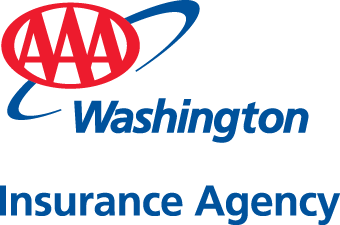Learn the Basics to Protect Your Business
Businesses come in all shapes and sizes, and so do the business insurance options that are available to owners to protect their businesses and themselves against potential financial and physical losses. If you are new to buying commercial insurance, the following eight key questions and answers can help you understand the basics.
1. What is Business Insurance?
Business insurance is also known as commercial insurance or a business owners policy. Whether it’s for profit or not for profit, if you are running a business you may want to protect it from potentially devastating losses.
2. What is Covered By Business Insurance?
Depending on the type of coverage, business insurance can help cover the cost of losses resulting from a wide range of categories, a few examples of which are:
- Fire
- Natural disasters like wind storms, flooding or even earthquakes
- Data breaches
- Dishonest employees
- Certain legal expenses
3. Who Needs Business Insurance?
Any business owner who offers a service or product that has a chance of causing harm should absolutely have business insurance. If you own a tree-trimming business in Tacoma, for example, you’ll want business insurance to protect you in case a falling limb damages a home or hurts its occupants.
Commercial insurance also can protect against business interruptions, theft, mistakes by managers or leaders, and lawsuits from competitors, employees or regulators.
4. Is Business Insurance Required In Washington and Idaho?
For the most part, there is no state or federal requirement to carry business insurance, but business owners will find certain situations where it is necessary. To open a flower shop in Spokane, for example, you would need a retail space and likely a vehicle. To get a loan to buy the storefront, you need commercial property coverage. To purchase a van for deliveries, you will be required to have commercial auto insurance.
5. If I Operate My Business Out of My Home and Already Have Homeowners Insurance, Do I Need Business Insurance?
Auto and home personal policies often have strict exclusions that preclude payment for business activities. If a client comes to your house in Seattle and slips and breaks his or her foot, your homeowners policy may not cover that injury.
Business insurance also is different in that it is more of an a la carte approach. You are able to customize the coverages you get based on the specific needs of your business. A professional insurance adviser can learn about your business and then tailor the coverage to your needs based on his or her experience.
Just like you would consult with an accountant or attorney to get specialized knowledge, you should consult with an insurance agent to help protect your business. The agent is likely to ask questions about your operations, employees, the conditions of your workspace and more.
6. What Factors Go Into Determining the Cost of Business Insurance?
At its core, the cost of business insurance depends on the complexity of a business and the level of risk. If the product or service you offer is unlikely to harm someone or cause property damage, then your cost will be lower. If your business has a higher risk, then your cost will be higher.
There are dozens of other factors that impact the cost, including the size and scope of your business. Coverage for small businesses can start around $500 per year. But if you operate a large fleet of trucks and drivers, the chance of a crash is higher, and your premiums will be as well. If you are new to running a business, your coverage will likely be higher than if you were an established business owner.
The best way to keep premiums as low as possible is to implement safe practices throughout your business. A restaurant owner might switch to a non-slip cleaner on their floors, while a truck fleet owner might start routine safety training for drivers.
7. What Do I Need to Include in My Business Disaster Recovery Plan?
Consider what kind of financial help you would need if there were a major loss to your business and you weren’t able to open your doors tomorrow.
If you are a restaurant owner and the space you lease catches on fire, your business could be closed for months — and if you don’t have emergency funds, it might close forever. To reopen the business, you may want your insurance to cover the following costs — among other things.
- Repairs to damaged kitchen equipment
- Moving costs, lease payments and equipment installation in case you need to relocate
- Salaries of key employees so you can keep them on the payroll instead of losing them to a competitor
- Marketing materials to announce your reopening
Ultimately, the details of your business disaster recovery plan and insurance coverage depend on the business needs.
8. If I Have Business Insurance, How Frequently Should I Have My Coverage Reviewed?
Ideally, you should have your insurance reviewed once a year, particularly if your business is growing or changing. That said, you should always feel comfortable reaching out to your insurance agent after any major business change, such as acquiring new equipment or moving to a new location.
– Written by Marc Zarefsky, last updated in January 2023.

